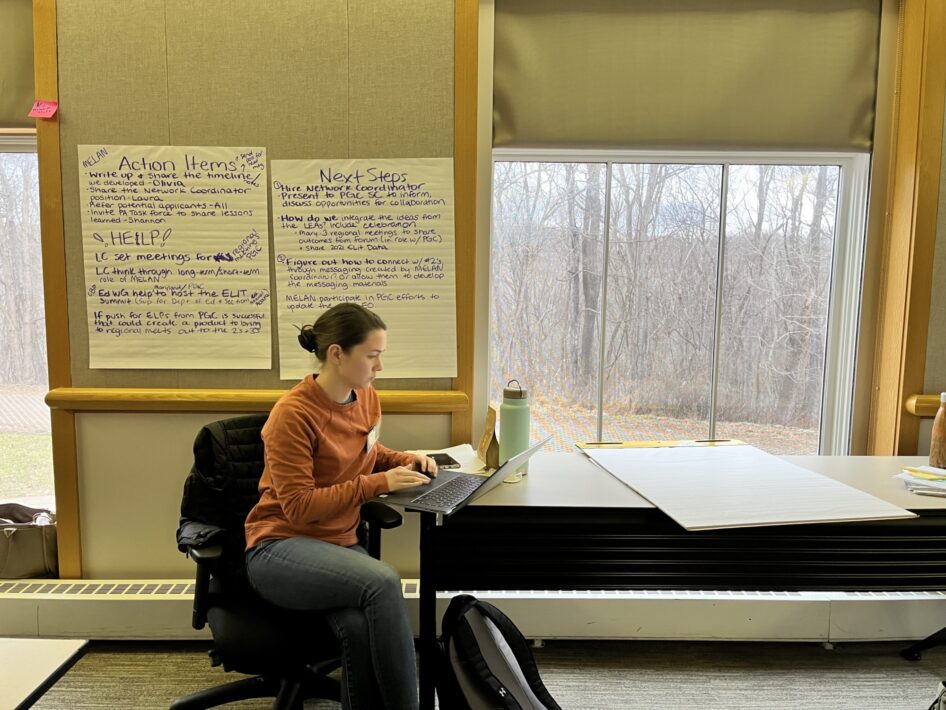Assessing the Landscape: How Do I Understand Where My District Is with Environmental Literacy?
No matter how much or how little you know about what your school district is already doing related to environmental literacy, conducting an inventory with multiple stakeholders can be a helpful way of gathering information and ground truthing your knowledge. A great place to start is to review your district's response to the Environmental Literacy Indicator Tool (ELIT) Survey. This is administered by the Education Workgroup of the Chesapeake Bay Program on an every-other-year basis to all school districts in the Mid-Atlantic region to monitor the status of environmental literacy efforts at a district level.
There are many ways to conduct an inventory from individual conversations to surveys to focus groups but there are some things to keep in mind regardless of your chosen method.

Who
Involve stakeholders from a variety of levels within the system and those who have different perspectives and interests. Engaging multiple stakeholders can provide a more balanced and nuanced picture of what is happening in your school district.
Some individuals, like those in charge of instruction and curriculum, or teachers from multiple grades and disciplines, are integral to assessing what environmental literacy programming is occurring.
Nonformal and community education partners who may support schoolyard-based and offsite-based field experiences can provide a unique external perspective.
Principals and facilities managers often have important information about rules and restrictions around using different areas of the schoolyard for outdoor learning.
Involving the wider community, including students and their families, can uncover where there are additional opportunities to build on.
What
The questions used in the assessment phase should be customized to each stakeholder group. For example, there may be a few questions that are applicable to all stakeholders, while others are more specific and can only be answered by a particular group of people.
Be clear about the kinds of programs and initiatives that fall within environmental literacy by including examples that can spark your stakeholders minds without influencing the results too much.
One of the most important parts of the environmental literacy plan is articulating where things like MWEEs and outdoor experiences are occurring over a student’s academic career. Include questions that uncover the extent to which these experiences are occurring for all students in a grade.
In addition to asking about what programming and learning opportunities are in place, include open-ended questions that provide stakeholders the opportunity to describe areas of opportunity for environmental literacy activities or programs or where capacity is needed in order to enhance an element (e.g., professional development, supplies, partnership).
How
Just as you customize questions, consider adjusting the format of how you learn about where your district is with environmental literacy depending on your stakeholders. This could look like focus groups, interviews, surveys, other methods, or a combination of these.
Examples of Assessment Resources
Digital Promise’s Asset Mapping: A Guide for Education Innovation Clusters
This guide presents a process for identifying existing strengths within a school district or community. Questions can be adapted for your context.
Read MorePrince William County Public School’s Environmental Literacy Partner Asset Mapping Survey
This is an example of a survey that PWCPS used to better understand the kinds of community partners that already are or could be supporting environmental literacy.
Read MoreArlington Public Schools 2018-19 Sustainability Inventory Results
The results of this sustainability inventory provides ideas of what kinds of data you might be able to gather through an assessment process.
Read MoreRichmond City Public Schools Environmental Literacy Survey
This community-needs survey aimed to gather information from parents, students, and community members at large about the gaps and opportunities for environmental literacy in Richmond.
Read More